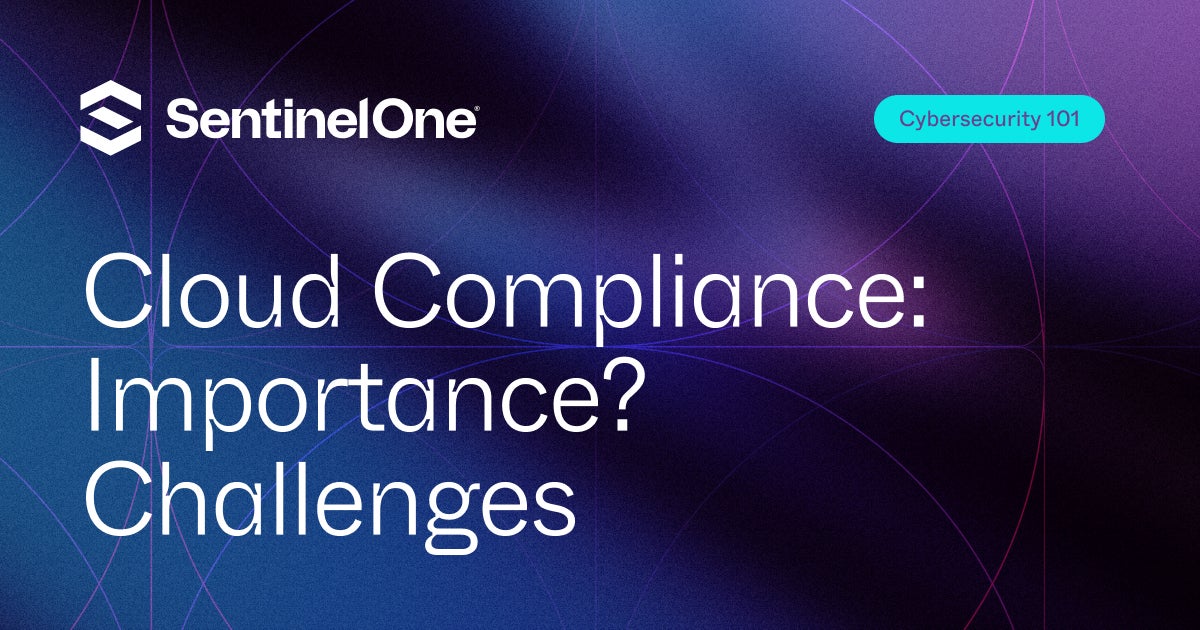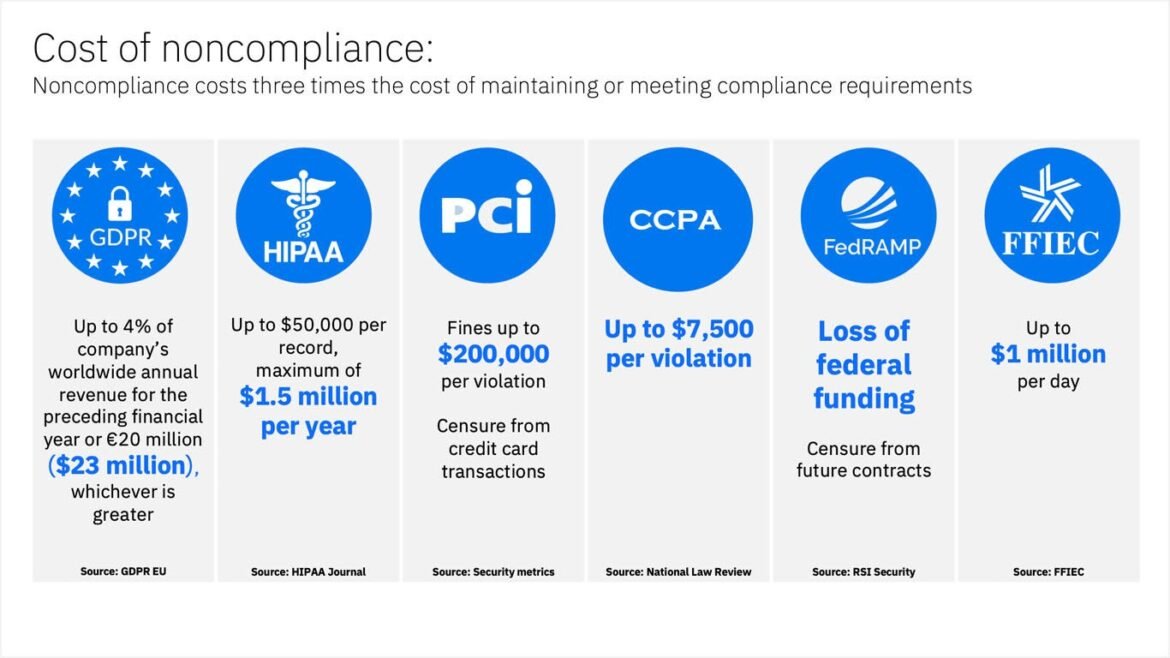
Understanding Cloud Compliance
Definition of Cloud Compliance
Cloud compliance refers to the set of regulations and standards governing how organizations manage their data in cloud environments. It ensures that businesses adhere to legal, regulatory, and industry-specific requirements. For instance, imagine a healthcare provider storing patient records on a cloud platform; they must comply with HIPAA regulations to protect patient privacy.
Why Cloud Compliance is Essential
Adhering to cloud compliance is crucial for several reasons:
- Data Security: Protects sensitive information from breaches.
- Trust and Reputation: Builds customer confidence and loyalty.
- Legal Obligation: Avoids penalties and fines.
Overall, cloud compliance safeguards businesses and their clients, making it an indispensable aspect of modern cloud strategies.

Overview of Regulations
General Data Protection Regulation (GDPR)
The General Data Protection Regulation (GDPR) is a comprehensive data protection law in the European Union. It emphasizes user consent and gives individuals greater control over their personal data. For example, if a website collects user emails, they must have explicit permission to do so.
Health Insurance Portability and Accountability Act (HIPAA)
HIPAA governs the privacy and security of health information in the U.S. For healthcare organizations, this means meticulous handling of patient data. If a hospital uses cloud services to store patient records, it must ensure those services comply with HIPAA guidelines.
Payment Card Industry Data Security Standard (PCI DSS)
PCI DSS establishes security standards for organizations that handle credit card transactions. The aim is to protect cardholder data and prevent fraud. This means any e-commerce platform must implement strict security measures if it processes payments online.
Understanding these regulations is vital for any organization operating in cloud environments, as compliance protects both customers and businesses.

Importance of Compliance in the Cloud
Data Security and Protection
Compliance in the cloud is vital for ensuring data security and protection. When companies adhere to regulations, they implement robust measures that shield sensitive information from breaches. For instance, regular security assessments help identify vulnerabilities and protect client data.
Legal and Financial Consequences
Failing to comply can lead to severe legal and financial repercussions. Businesses might face hefty fines, lawsuits, and damage to their reputation. For example:
- Fines: GDPR violations can lead to penalties of up to €20 million or 4% of global turnover.
- Lawsuits: Breaches may lead to lawsuits from affected customers.
In short, compliance isn’t just a box to check—it’s essential for safeguarding data and maintaining operational integrity.

Navigating Cloud Compliance Challenges
Complexity of Multi-Cloud Environments
As organizations increasingly adopt multi-cloud strategies, navigating compliance becomes challenging. Each cloud provider may have different regulatory standards. For example, if a company uses both AWS and Azure, they must understand the compliance requirements of each platform.
- Integration Issues: Ensuring that all systems communicate effectively can be complicated.
- Varying Policies: Different providers may have unique security protocols.
Ensuring Data Sovereignty
Data sovereignty refers to the legal implications of where data is stored. With data crossing international borders, organizations must ensure compliance with local laws. For instance, data stored in the EU must adhere to GDPR regulations, regardless of where the cloud provider is based.
Thus, understanding these complexities is crucial for maintaining compliance and protecting businesses in the ever-evolving cloud landscape.

Strategies for Achieving Cloud Compliance
Cloud Security Best Practices
Achieving cloud compliance starts with implementing robust security best practices. Companies can enhance their security posture by:
- Regular Updates: Ensuring that software and systems are routinely updated to patch vulnerabilities.
- Strong Access Controls: Limiting access based on user roles to minimize the risk of unauthorized data breaches.
Risk Assessment and Management
Conducting regular risk assessments is another critical strategy. This involves identifying potential security threats and vulnerabilities in cloud systems. For instance, a healthcare organization might evaluate its data encryption methods regularly to ensure they meet HIPAA standards.
By employing these strategies, organizations can effectively navigate the complex landscape of cloud compliance, safeguarding their data while fostering trust among their clients.

Tools and Technologies for Cloud Compliance
Encryption and Tokenization
When it comes to safeguarding data, encryption and tokenization are essential tools for achieving cloud compliance. Encryption transforms sensitive data into unreadable code, making it nearly impossible for unauthorized users to access it. For example, a financial company may encrypt customer credit card information stored in the cloud.
Tokenization takes this a step further by substituting sensitive data with unique identifiers, or tokens. This way, actual data is not stored, reducing risk significantly.
Cloud Access Security Brokers (CASB)
Cloud Access Security Brokers (CASBs) provide an additional layer of security by offering visibility and control over cloud applications. For instance, a company implementing a CASB can monitor user activities and enforce compliance policies across various cloud services, ensuring that sensitive data remains secure.
Utilizing these tools and technologies is critical for organizations striving to maintain compliance while leveraging the power of the cloud.

Compliance Monitoring and Auditing
Continuous Compliance Checks
In today’s fast-paced digital landscape, continuous compliance checks are vital for maintaining cloud compliance. These checks ensure that an organization’s systems and processes adhere to regulatory requirements at all times. For instance, using automated tools can help detect deviations in real time, allowing immediate corrective actions.
- Automated Alerts: Notifications for non-compliance instances boost responsiveness.
- Data Integrity: Regular checks help maintain data accuracy and security.
Importance of Regular Audits
Regular audits play a crucial role in a compliance strategy. They provide an objective assessment of an organization’s compliance status, identify gaps, and help strengthen security measures.
Consider a retail company that conducts quarterly audits to ensure compliance with PCI DSS; it results in enhanced security for customer data and a boost in customer trust.
Combining continuous checks and regular audits fosters a proactive compliance culture, essential for every organization leveraging cloud technologies.

Future Trends in Cloud Compliance
Impact of Emerging Technologies
As we look to the future, emerging technologies like artificial intelligence (AI) and blockchain are poised to transform cloud compliance. AI can automate compliance monitoring, analyzing vast amounts of data to identify potential risks faster than traditional methods. Imagine a financial institution swiftly detecting anomalies in transactions, thus minimizing compliance breaches.
- Smart Compliance Tools: Utilizing AI-driven solutions enhances efficiency.
- Blockchain for Transparency: It can provide immutable records of transactions, ensuring data integrity.
Evolving Regulatory Landscape
Simultaneously, the regulatory landscape is constantly evolving. New laws and regulations will continue to emerge, requiring organizations to stay agile. For example, global data protection regulations may expand to cover emerging technologies, making it crucial for businesses to adapt.
Keeping an eye on these trends enables organizations to not only maintain compliance but also leverage innovations that enhance their overall cloud strategy.

Conclusion and Key Takeaways
Recap of the Importance of Cloud Compliance
In summary, cloud compliance is not merely a regulatory checkbox but a crucial aspect of data security and business integrity. Protecting sensitive information while adhering to legal standards fosters trust and enhances reputation. Remember, organizations that prioritize compliance can avoid costly penalties and potential data breaches.
- Build Trust: Compliance strengthens customer relationships.
- Mitigate Risks: A structured compliance approach reduces vulnerabilities.
Final Thoughts on Navigating Regulations
Navigating the complexities of cloud compliance can seem daunting. However, by staying informed about regulations and leveraging the right tools, organizations can effectively manage their compliance obligations.
Engaging with compliance specialists and continuously monitoring evolving guidelines can provide valuable insights, ensuring that businesses remain ahead of the curve. Embracing cloud compliance will not only protect asset integrity but also unlock opportunities for growth in the digital landscape.

